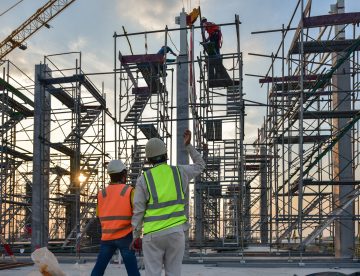
When project deadlines are looming, allowing periods of overtime can be helpful in ensuring everything is completed on time. However, excessive reliance on overtime during any phase of construction can be a telltale sign that something might have gone wrong at the initial planning stage.
So, the question is ‘How can a construction business effectively reduce its reliance on overtime and ensure smoother, more efficient operations?’ Read this week’ blog to explore this subject in more detail.

According to the Health and Safety Executive (HSE), over 1.2 million working days are lost in the UK because of injuries caused during manual handling tasks in the construction industry.
Aside from the economic impact, such injuries can be painful and have long-term, serious consequences – particularly those involving back problems like slipped discs and repetitive strain injuries. At Sheriff Construction, our site workers undertake mandatory training in this area but we thought we’d use this week’s blog as a reminder of why this is such a backbone of safety in construction and pass on a few general ‘DOs’ and ‘DON’Ts’.

The title of this week’s blog might seem obvious but, in reality, there are all kinds of barriers that prevent people from experiencing good mental health – barriers in our homes, schools and workplaces as well as other issues like simply not knowing how to talk to each other about worries and feelings.
We’ve previously published articles focusing on how to look after your own mental health so, for this year’s mental health day, we’re sharing some tips for how you can check in with and support others.
